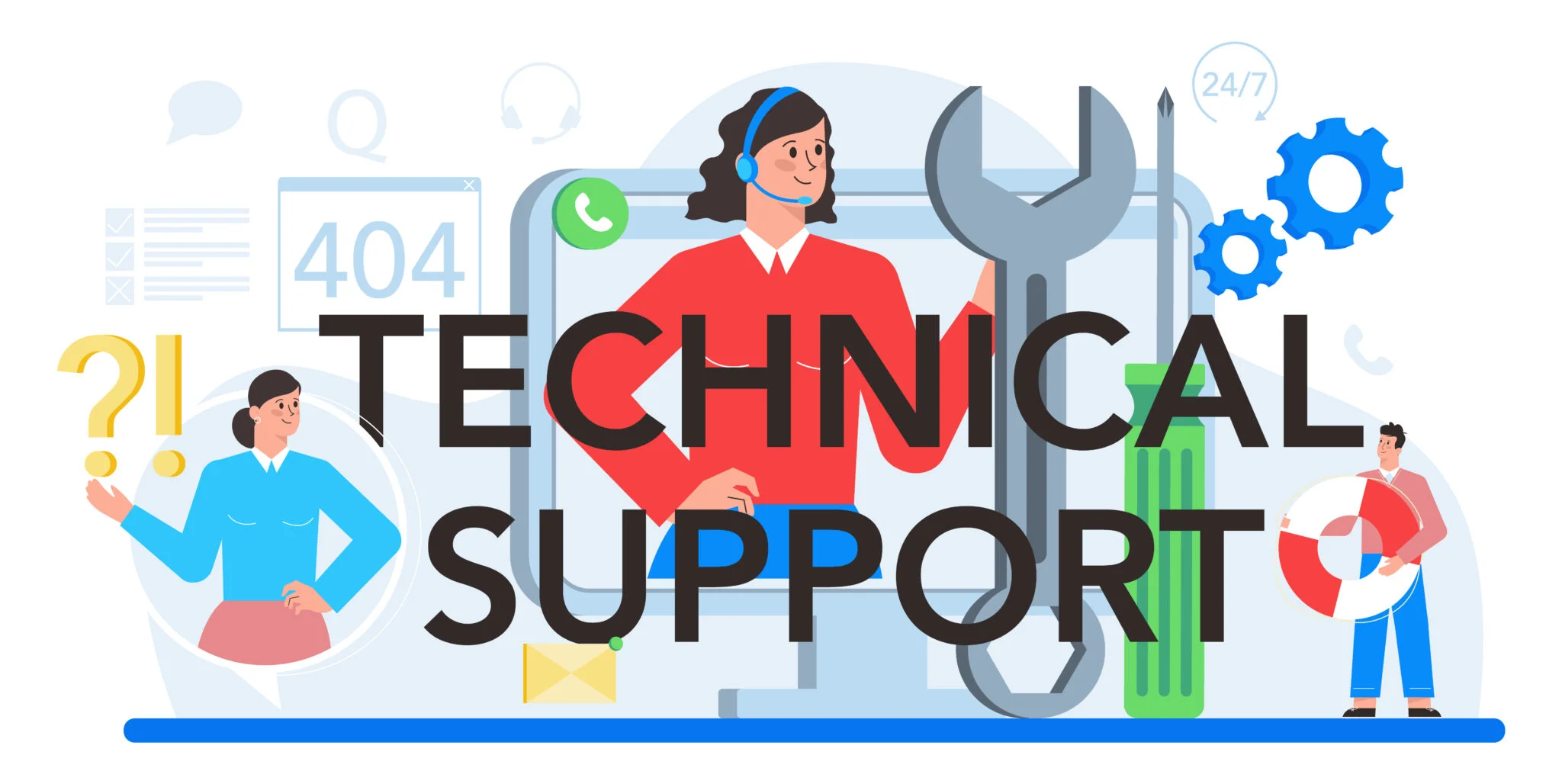IT Support Technician/Engineers: Solve Your Common Tech Problems
IT support, in its broadest sense, refers to any kind of technical assistance provided to people or businesses in support of hardware or software. It usually concentrates on assisting a user in troubleshooting a particular issue. A tech support representative will frequently need sensitive access to the user’s (or organization’s) network or device to provide this support. Accordingly, it’s critical to have sufficient security measures in place, including privileged access controls, password management, remote access security, session management, etc. These will make it possible for tech support to do their duties securely and effectively without exposing the system to new threats or raising the level of risk.
IT support can take many different forms and is available with several IT support credentials. It is often referred to as tech support, technical assistance, help desk, customer support, or service desk. Three categories can be made out of these support aliases:

What does modern IT support look like?
Whether they are internal- or external-facing, IT services can be administered by an internal IT team, a contractual or outsourced IT support service, or an individual or organization with the appropriate degree of certification for IT support. tiny businesses could only need a single IT generalist or a tiny internal IT team. Small businesses, however, increasingly rely on outside assistance for software or cloud services. Larger organizations or businesses that require tech assistance as a service could have several departments and a large staff devoted to their diverse IT requirements.
Online lessons, chatbots, live chat, email, and even software that lets an IT specialist remotely connect to and manage your PC are all ways that tech assistance can be provided.
What types of issues are resolved by IT support?
Users of technological products or services can get help through help desks. This help is often needed when a technical or software issue arises, but these problems can take many different forms. Let’s examine the typical issues that IT assistance may handle.
Troubleshooting computer hardware, software, server upkeep, and other technical problems
Today’s offices require staff members to use a variety of hardware and software tools daily. Teams of technical support personnel will assist in ensuring that servers are kept up and functional. Additionally, they will guarantee that all endpoints and applications are working properly to prevent disruptions of uptime or efficiency. This assistance may involve identifying, preventing, or addressing problems including sudden computer shutdowns or overheating, slow computer performance, software bugs, printer, and other device connectivity problems, network and internet connection problems, etc. They might also perform hardware maintenance, update desktops with security patches, update modems, and update routers with updates.
What Are Technical Support Engineer Skills?
These professionals use their technical support engineer skills to be successful in their careers. These qualities include things like technical expertise, effective communication, first-rate customer service, the capacity to solve problems, and analytical thinking. Technical support engineers are better able to recognize and fix computer issues because of their technical experience in hardware, software, networking, and other computer-related technologies. Strong communication skills help them communicate technical knowledge to clients clearly and straightforwardly. These abilities guarantee that technical support experts offer customers high-quality services.
Examples Of Technical Support Engineer Skills
Maintaining a customer-oriented approach
A technical support engineer’s main objective is to guarantee that they can fix clients’ technical problems. A focus on the needs of the consumer means that technicians are sympathetic, patient, and able to deliver a great experience. This strategy calls for strong interpersonal abilities and comprehension of the needs of the client, which aid in the provision of pertinent solutions. Additionally, it aids in creating lasting connections with clients to foster their loyalty.
Technical writing
Technical support engineers may create documentation, training materials, or knowledge-based articles. Writing documents that customers and other technical support engineers can refer to is made easier by having good technical writing abilities. Clear and effective communication of difficult material is made possible by strong technical writing abilities. Writing consistently and logically for a non-technical audience is necessary for technical writing.
Problem-solving and analytical aptitude
Technical support engineers may frequently run with challenging technical issues. To tackle technological challenges successfully and efficiently, problem-solving abilities are necessary. They need the capacity to pinpoint the issue’s underlying causes, examine them, and come up with a remedy. This procedure calls for resourcefulness, inventiveness, and the capacity for critical and creative thought.
Technical expertise
For a technical support engineer, having technical training is essential. These specialists are highly familiar with computer networking, hardware, software, and other related domains. They continually have an essential understanding of computer languages, databases, and operational procedures. They can stay up with the most recent technological advancements and swiftly identify and fix technical issues thanks to their knowledge. They may also be informed about issues relating to security and privacy.
Time management
Technical support specialists efficiently manage their time because they frequently respond to several consumer inquiries at once. They swiftly offer answers and prioritize duties. To avoid delays and backlogs and to guarantee customer satisfaction, time management skills also guarantee consumers receive timely and efficient help.
Ways To Improve Your Skills As A Technical Support Engineer
Improve your communication skills
Since technical support engineers frequently explain difficult technological knowledge, communication skills are essential. By participating in public speaking events, exercising active listening, and completing technical writing classes, you can enhance your communication abilities. Writing articles for technology blogs or specialized documentation is another way to improve your paper abilities. Developing stronger contact skills will help you win your client’s trust and supply them with satisfying knowledge.
Develop your problem-solving skills
Problem-solving skills are crucial because technical support engineers regularly work on complex issues to find solutions. You can improve your problem-solving skills by performing on real-world issues, participating in coding competitions or hackathons, and meeting critical thought and analytical techniques. You might be able to tackle technical issues better quickly and virtually if you rehearse your problem-solving talents.
Gain practical experience
Start a side project or look for internships to gain real-world experience. You acquire practical experience and hone your work-related abilities by tackling real-world issues. Your understanding of the difficulties clients face will enable you to offer more sensible answers.
Demonstrate Your Skills In The Workplace
- Provide effective solutions.
By offering workable answers to technological issues and showcasing your critical and inventive thinking, you can showcase your technical expertise.
- Communicate effectively
Showcase your abilities by paying attention to what customers have to say, properly articulating technical concepts, and offering frequent updates.
- Adopt a customer-focused approach.
Show that you are dedicated to offering first-rate customer service by asking for feedback, keeping track of problems, and going above and beyond to make the experience pleasant.
- Take ownership of technical issues.
Take responsibility for technical issues and demonstrate your proactivity to demonstrate your dedication to fixing difficulties and enhancing the client experience.
Common IT helpdesk problems and solutions
After working on your company’s IT helpdesk for a while, you begin to have an understanding of the kinds of problems that employees may ring in with questions about. In general, these are the help desk issues and solutions that people call for advice on, but depending on the industry you provide support to, you may have different questions than these (for instance, your employees may use specialized software that generates a lot of calls to the help desk):
They can’t log in.
These users are unable to access the systems until the helpdesk intervenes, whether they have forgotten their password or accidentally left their caps lock on while trying to input it. Verify that the worker is not attempting to input a password with the caps lock set on. Additionally, examine whether the account is suspended for inactivity or if the password has expired. Mail a password reset link to the worker. Other options include implementing password management software within your company or creating a self-service password reset webpage.
They’ve deleted files they shouldn’t have.
Frequently, you will receive a call from a panicked person asking how to retrieve files that have been sent to recycling or that were in the recycling bin but have since been emptied. First, see if the file is in the recycling bin. If not, find it there. You might need to restore the file for the user from the server backup if the recycle bin has been emptied.
The computer is too slow.
Because the user is running too many windows and programs simultaneously and consuming too much memory, this is frequently an easy repair. Assess the user’s CPU utilization to see if they are running too many apps concurrently, especially if they are memory-intensive. Remove any large, superfluous programs and files from the user’s hard disc with their consent, as well as any temporary files from the Windows folder. Make sure the user’s machine is virus and spyware-free as well.
Conclusion
IT support specialists must have the crucial skill of troubleshooting software bugs to respond quickly and effectively to user software-related problems. IT specialists can swiftly find and fix software bugs by using methodical troubleshooting procedures, such as identifying the particular program, checking for updates, and testing in Safe Mode.
When helping users with software issues, keep in mind to be understanding and patient. Users who receive clear instructions and effective communication are more likely to comprehend the troubleshooting procedure and have a pleasant support experience.
IT support staff must stay current with the newest software and troubleshooting techniques as technology continues to advance. Accept the challenge of software errors, and with your knowledge, you’ll continue to provide users with seamless and uninterrupted software experiences, adding to the organization’s overall success.


